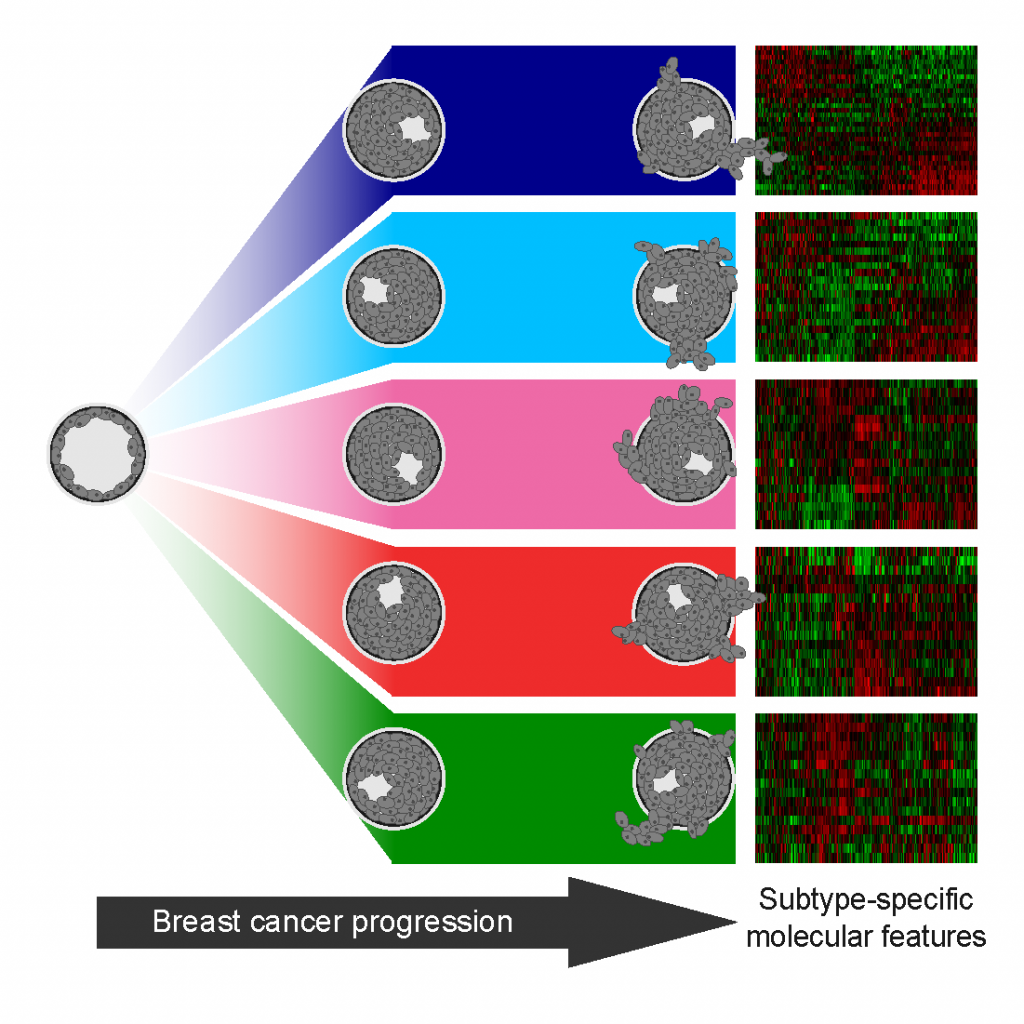The natural history of ductal carcinoma in situ (DCIS) and the exact causes of disease progression are unknown and we lack accurate ways to identify at diagnosis those DCIS patients that may be safely spared treatment. This work provides evidence that there are molecular features associated with disease progression that are unique to the intrinsic molecular subtypes of breast cancer. Most previously identified gene expression signatures that differentiate DCIS and invasive breast cancer have been consistently biased for improved performance in the luminal subtypes. We show that progression from DCIS to invasive breast cancer occurs in an intrinsic subtype-specific manner, indicating distinct evolutionary disease paths. The molecular properties that differentiate DCIS and IDC involve cells and processes of the tumor microenvironment, differentially between the subtypes. These findings suggest that subtype-specific molecular markers may have the potential to predict risk of progression.

We hypothesize that each molecular subtype of breast cancer likely undergoes a distinct evolutionary course of disease progression leading to specific molecular patterns of the final tumor. Robert Lesurf et al. Cell Reports 2016.
The paper Molecular Features of Subtype-Specific Progression from Ductal Carcinoma In Situ to Invasive Breast Cancer by Robert Lesurf et al. was published in Cell Reports in July 2016.

















